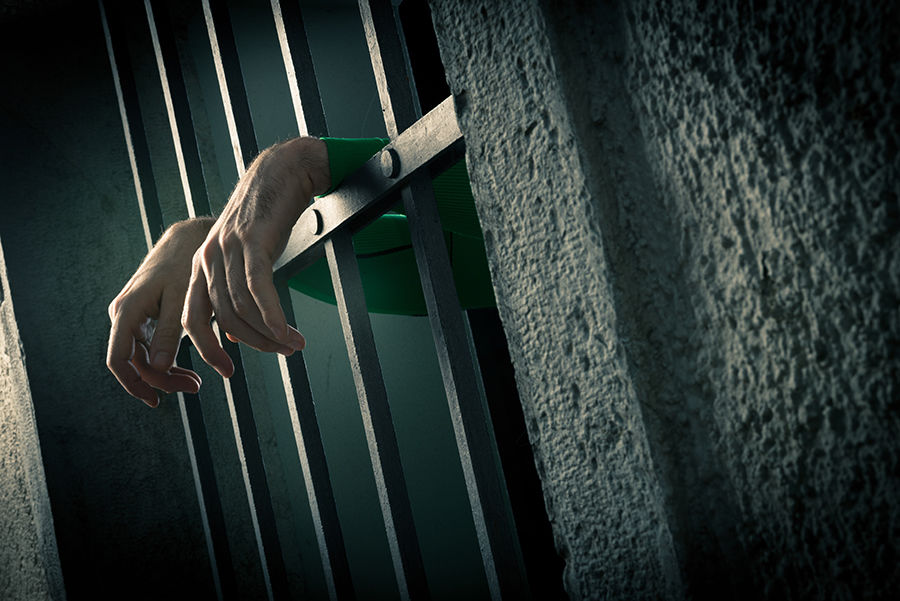Servant of God Jacques Fesch (1930-1957), a murderer who spent three years and eight months in solitary confinement, experienced a profound conversion before his execution by guillotine in a French prison.
“Light Upon the Scaffold: The Prison Letters of Jacques Fesch,” edited by Augustin-Michel Lemonnier and translated by Matthew J. O’Connell, is the title of his collected prison letters.
Jacques’ father, a bank director, was dominating, cynical and virulently atheistic. His mother was weak. Worse, the two neither loved nor respected one another. Thus Jacques had little moral and no religious guidance.
As an adult, Jacques was lazy, a sensualist and a dreamer. He married his wife, Pierrette, already pregnant, in a civil ceremony and soon left her. The murder took place during a botched robbery attempt, part of a plan to buy a boat and sail to Polynesia.
Jacques was arrested and held in solitary confinement at La Santé Prison in Paris. Though he originally spurned the prison chaplain, the two gradually became close. An old, loyal friend was ordained a priest during Jacques’ incarceration and visited frequently. Jacques’ lawyer, Baudet, was an ardent Catholic.
With the guidance and support of these three spiritual companions, Jacques began to examine his past and to seek the meaning of his existence. After eight months, by “a very intense affective anguish,” he underwent a conversion.
He pondered the distinction between morality and the law, and wrote:
“I did evil and I know it, but I also know how and why I acted as I did. I am perfectly aware that I was not free. My real guilt is not in this area, and it is not the actions for which I am now in prison that are the most serious ones. … The people before whom I feel guilty are not the civil authorities, but others; and if the day ever comes when true judgment is passed upon it, it is these others who will weigh in the balance against me: Pierrette and Veronica [Fesch’s daughter]. It is for them that I must give an account.”
He saw that his cell was a cloister. He read spiritual biographies: St. Teresa of Ávila, St. Francis of Assisi. He prayed the Office daily and sought God constantly. Concerned about Veronica’s spiritual education, he tried to interest Pierrette in Catholicism. His mother and one sister showed signs of interest in the faith.
Then, with his trial looming, Jacque’s mother died, a devastating blow.
He had hoped for and expected a sentence of life imprisonment at the worst and at best twenty years, of which, with good behavior, he would serve perhaps 10.
Instead, in early April 1957, he was sentenced to death.
He suffered a long interior night: assailed by temptations, coming face to face with his character defects.
“I am sad indeed,” he wrote. “Is it a lack of humility that is making me insensitive? I could easily become violent, and at the least contradiction my hackles go up. Pride: the worst of evils and the one that most separates us from the Lord. I have plenty of reasons to be humble, but I’m not. The more I’m knocked down, the more I stiffen my neck and cling to the pride that is my form of courage.”
He developed into a mystic, learning the true meaning of prayer.
“Do not ask God to save such and such a person, or to help this one or that, but ask him that you may love him, and that his will may be done. You must talk with him familiarly, and explain to him that you want to love him well, but that you can’t do it, that many things seem obscure and illogical to you, and that you would like to understand them a little better … and do not hesitate, all day long, to invoke heaven.”
Two months before his execution, he wrote in a letter to his mother-in-law:
“Here is where the cross and its mystery of suffering make their appearance. The whole of life has this piece of wood as its center. …We can have no genuine hope of peace and salvation apart from Christ crucified! Happy the man who understands this.”
He offered his life for his father and all those whom he loved. He was fully reconciled to Pierrette the night before his execution. In his last journal entry he wrote, “In five hours, I shall look upon Jesus!”
The cause for beatification has been opened.
Jacques Fesch reminds us that behind every state-sanctioned murder is a human being with hopes, fears, longings and, however deeply buried, the fundamental idea of God. He reminds us of the central Catholic tenet that every soul is redeemable. He reminds us that our Lord was himself the victim of capital punishment — and that one of his last acts was to turn to the repentant thief beside him and say, “This day you shall be with me in paradise.”
If you correspond with a prison inmate or two, as I do, you couldn’t do better than to send him or her a copy of “Light Upon the Scaffold.”
Pray for us sinners, Jacques Fesch, now and at the hour of our death.
Heather King is a blogger, speaker and the author of several books.

